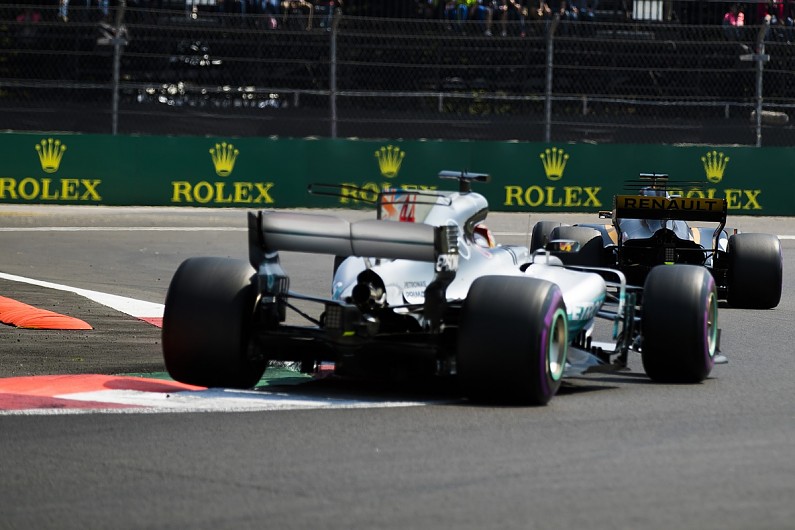Renault and Mercedes believe Formula 1 risks opening up a needless spending arms race and having a less-competitive grid with new engine regulations that have been proposed for 2021.
Plans for the next generation of engines were revealed on Tuesday and include a suggestion of retaining the current 1.6-litre engine, to be run 3000rpm higher, and ditching the MGU-H for a more powerful MGU-K.
While those appear similar to current regulations, the changes would be enough to force manufacturers to build new engines.
Renault and Mercedes believe F1 would be better off focusing on providing louder and more powerful engines through simple rule changes.
“Despite maybe what FOM and FIA would say – what is put forward is a new engine,” Renault F1 managing director Cyril Abiteboul told Autosport.
“That’s really for me the most fundamental element.
“We need to be extremely careful because each time we come up with a new regulation that will come up with a new product; we all know the impact.
“It’s going to open an arms race again, and it will open up the field.”
Mercedes motorsport boss Toto Wolff added: “When you look at the bullet points presented, it looks like no big change and is superficially similar – but there’s massive change in there.
“It’s all-new engines, with new harvesting and deployment strategies for energy.
“All of us accept that development costs and sound need to be tackled, but we shouldn’t be running away with creativity in coming up with new concepts, because it will trigger parallel development costs over the next three years.”
Renault has suggested that because smaller changes would not requiring new engines, they could be introduced for 2019 if all manufacturers agreed.
“Renault’s proposal for six months now has been to keep the current engine but waiving any restriction in terms of fuel quantity, plus moving the fuel flow limitation and also the rev limit,” added Abiteboul.
“The great thing about that proposal is you could do that without having to wait until 2021.
“The world is changing quickly; by 2022, a number of car makers will have moved to something that’s more electrified than today, so I think the timing to decide now what we want for the period 2021 to 2026 is maybe not appropriate.”
Wolff said there is a risk F1 has realised too late that tweaked versions of the current units would have been a better long-term option.
“We are not learning from our past historic experiences,” he said.
“It should be about optimising the deficits we have with the current engines.
“If you tackle those deficits and have a convergence over the next 24 months there’s not a lot wrong. The costs have been spent.”
The FIA and the F1 Group hope new engine rules will attract new manufacturers, but Wolff said it would be a mistake to ignore the interests of those currently competing.
“F1 needs to stay attractive for the current engine suppliers and then F1 should be attractive for new entrants,” he said. “This is the order of priority.
“We need to enter into a dialogue now to come up with a concept that functions for everyone, and we are keen to enter into that.”
Ferrari has not yet spoken about the proposals, while Honda has declined to comment.
